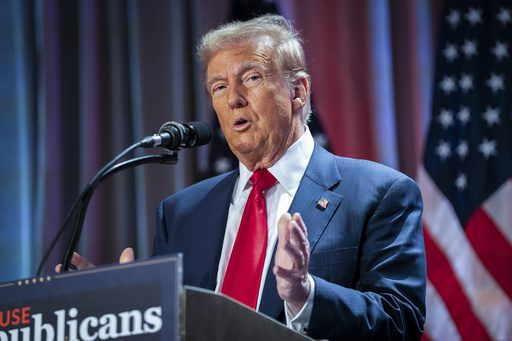
WASHINGTON — Chris Wright, a fossil fuel executive with a strong pro-oil and gas stance, has been nominated by Donald Trump as the new Secretary of Energy. Wright’s support for hydraulic fracturing aligns with Trump’s ambitions to achieve U.S. “energy dominance” globally. Recognized as a vocal opponent of climate change countermeasures, Wright might promote fossil fuel interests, including the swift resumption of natural gas export approvals previously halted by the Biden administration.
Wright serves as the CEO of Liberty Energy, a Denver-based energy service firm. He considers himself a “tech nerd turned entrepreneur,” advocating for the notion that increased fossil fuel production can alleviate global poverty. Notably, he lacks any governmental experience, having led Liberty Energy since 2011. The company focuses on technological innovations in the energy sector. Born and raised in Colorado, Wright obtained his undergraduate degree from MIT and pursued graduate studies in electrical engineering at both UC Berkeley and MIT. In 1992, he founded Pinnacle Technologies, which played a significant role in launching commercial shale gas production through fracking. Later, he chaired Stroud Energy and established Liberty Resources in 2010.
Wright’s potential confirmation would position him alongside North Dakota Governor Doug Burgum, who is slated to be the Interior Secretary, playing a pivotal role in energy policy if a second term for Trump is secured. Wright will also be part of the newly formed National Energy Council chaired by Burgum. This council aims to cement U.S. energy strength internationally, in stark contrast to the current administration’s focus on climate initiatives.
Trump’s proposed energy council will incorporate all relevant executive branch agencies involved in various facets of energy management, including permitting, production, and regulation. The objective will be to minimize red tape and ramp up domestic energy output. This initiative marks a decisive pivot from the Biden administration’s policies, which prioritize fighting climate change. Trump plans to eliminate unspent funds from the Biden climate legislation and is expected to shift focus away from the promotion of electric vehicles and stricter environmental regulations.
The nomination of Wright has garnered backing from prominent conservatives and figures in the oil sector. Notably, oil magnate Harold Hamm, a key Trump advisor, has expressed his endorsement. Hamm played a vital role in Trump’s energy agenda during the last term and even orchestrated a fundraising event at Trump’s Mar-a-Lago estate. Furthermore, Thomas Pyle from the American Energy Alliance lauded Wright as a commendable choice for the Energy Secretary position, while Mike Sommers, head of the American Petroleum Institute, expressed enthusiasm to collaborate with Wright in enhancing U.S. energy access globally.
Despite the favorable reception from conservative allies, Wright’s nomination has not escaped criticism. He has been vocal in disparaging climate activists, dismissing their approaches as ineffective. Environmental advocates such as Jackie Wong from the Natural Resources Defense Council have labeled Wright a “champion of dirty fossil fuels,” warning that his appointment would hinder efforts towards renewable energy advancement. Wong insisted that the Department of Energy should focus on developing sustainable energy sources instead of promoting outdated fossil fuels.
Another critic, Lena Moffitt from Evergreen Action, argued that Wright’s ties to the fossil fuel sector indicate a conflict of interest, particularly as he would oversee funding for clean energy projects essential for economic growth and job creation. Moffitt contended that Trump’s choice appears to prioritize political alliances over addressing the genuine challenges presented by climate change and the energy transition for American citizens.
